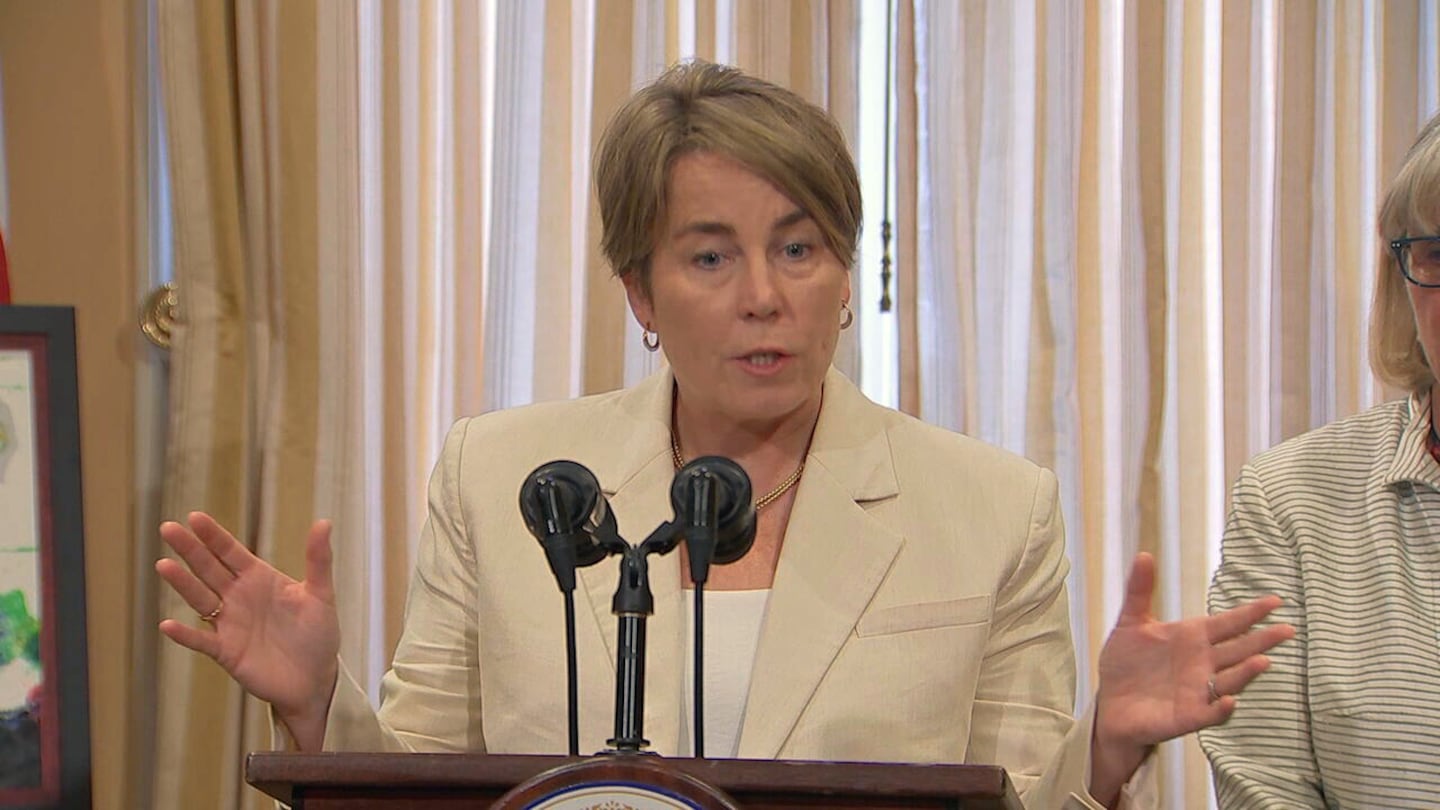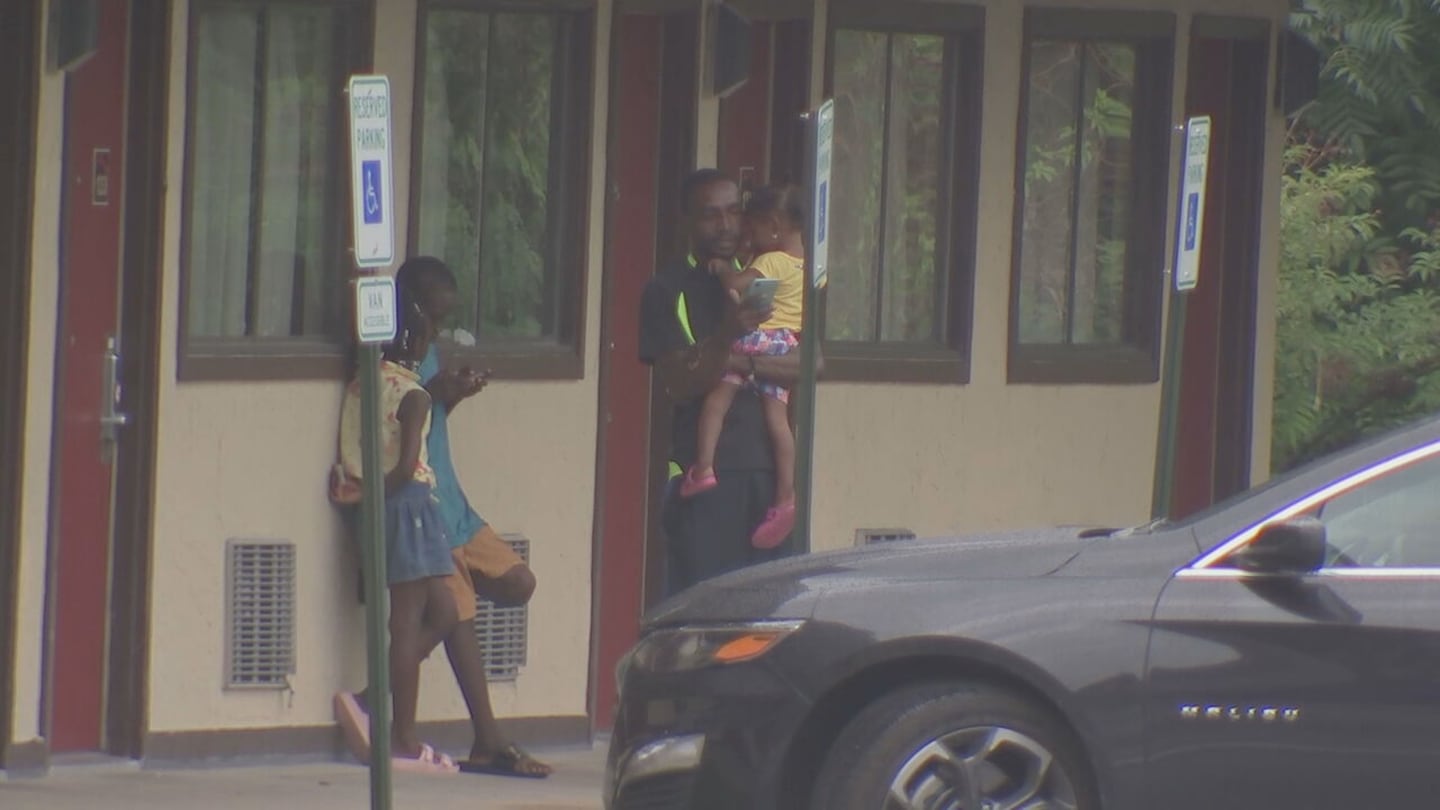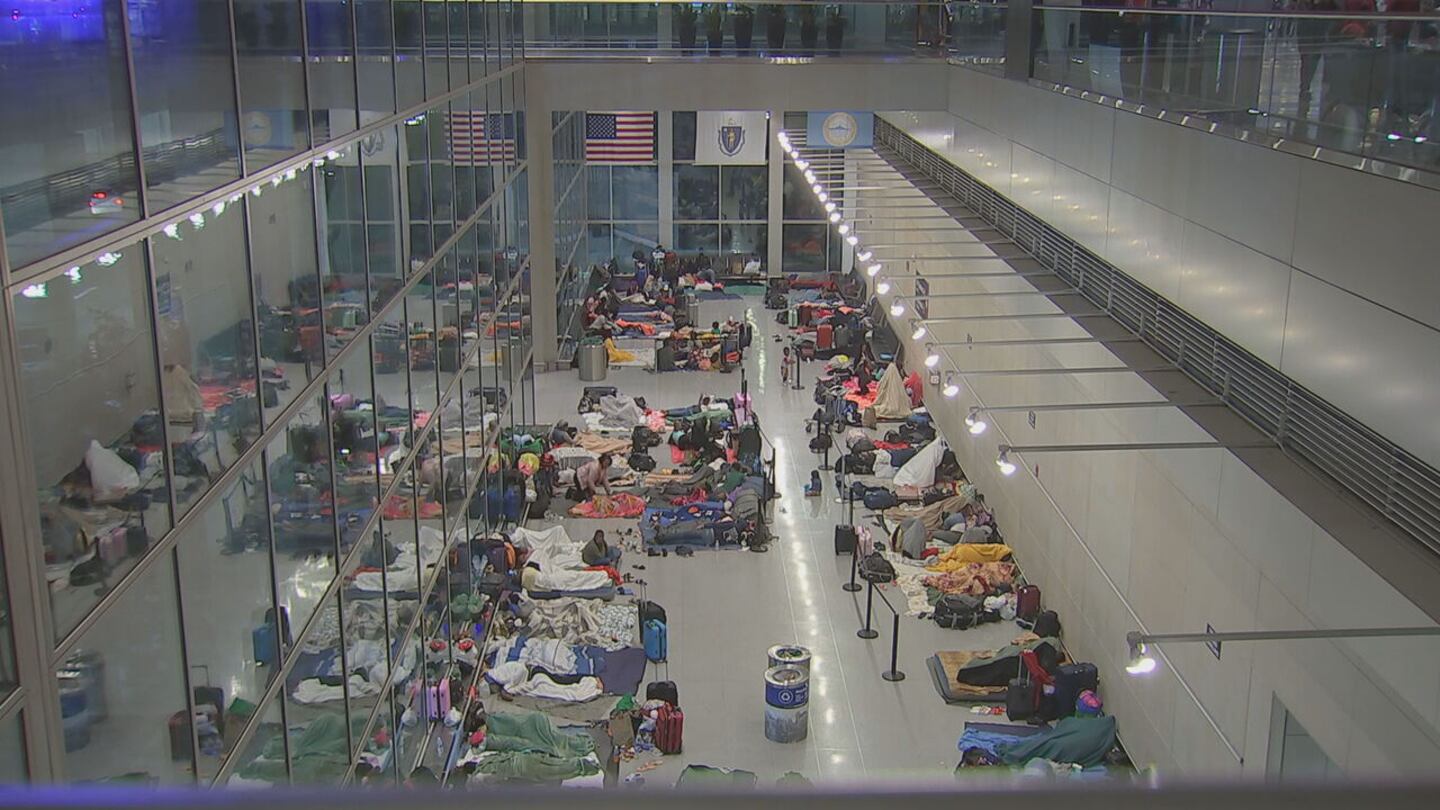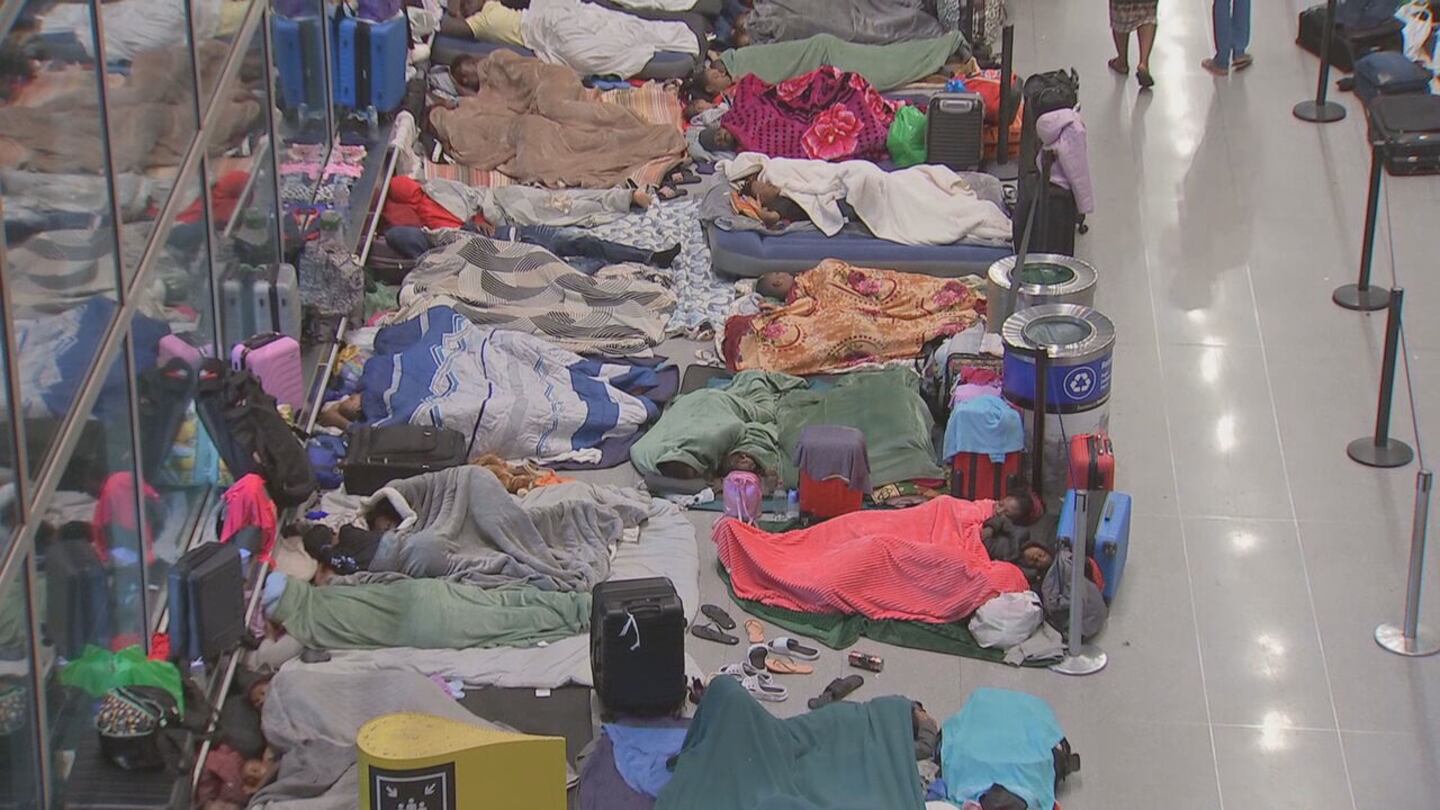BOSTON — After years of grappling with a migrant crisis, Massachusetts officials plan to close all emergency state shelters in hotels and motels in the state this summer, Gov. Maura Healey said Monday.
Healey, who previously directed all hotel shelters to be closed by the end of 2025, said the state is six months ahead of schedule. The remaining state-run shelters in hotels across the Bay State will close this summer.
The Norfolk Rapid Shelter located at the former Bay State Correctional Center and the Revere CSR site at the Revere Quality Inn will close this summer, due to declining caseload, officials said.
Additionally, the Lowell Inn and Conference Center will transition from a Bridge Track shelter site to a Rapid Track shelter and CSR site in July, Healey said.
A new report found that as of April 30, 32 hotel shelters remain in Massachusetts, down from a peak of 100 in the summer of 2023, a 68 percent decrease, Healey said.
The total number of families in shelter recently dropped below 5,000 for the first time since July 2023 and is expected to drop below 4,000 families this summer, Healey said.
“When we took office, homeless families were being placed in hotel shelters across the state,” Healey said in a statement Monday.
“A hotel is no place to raise a family, and they are the least cost effective,” Healey said. “That’s why we implemented reforms to lower caseloads and the cost of the shelter system. We also promised to close all hotel shelters by the end of the year. I’m pleased that we are ahead of schedule, with more families getting jobs and moving to stable housing.”
Healey’s announcement on Monday comes nearly two years after she declared a state of emergency and imposed a cap on the system at 7,500 families in 2023.
Healey said the decreases are a result of a number of reforms she made to reduce caseloads and the cost of the state’s Emergency Assistance family shelter system.
These include a six-month length of stay requirement, workforce training and job placement for residents, and increased case management to help families find stable housing.
In January, Healey announced that families staying in Massachusetts emergency shelters must be in the U.S. legally and must also undergo a criminal background check before staying at shelters.
Those were among the “significant changes” that Healey proposed to the state’s Right to Shelter law in January amid a migrant crisis in Massachusetts.
The proposed changes were announced in January after a Dominican national living at a state-run emergency family shelter in Revere was arrested in December for allegedly having an assault rifle and five kilograms of suspected fentanyl at the shelter.
Healey ordered the inspection of all state-run emergency family shelters on Jan. 6 following his arrest.
In May 2024, a migrant was indicted for raping a 15-year-old girl at a Rockland hotel being used an emergency shelter in March 2024.
For the past three years, thousands of families have been arriving in Massachusetts in droves from other states and other countries seeking shelter, officials said.
The state turned to hotels and motels to shelter the large numbers of migrants and homeless families.
Shelters sites that opened up across Massachusetts in 2023 included a migrant shelter and resource center on the campus of Eastern Nazarene College in Quincy and a Cape Cod military base that opened as a shelter site.
‘Unexpected influx’: Norfolk officials share concerns about turning former state prison into shelter
In 2014, 1,500 families were being sheltered in hotels across the state, officials said.
Then, in 2022, the number of families seeking shelter “began to dramatically increase due to the housing crisis, failed federal immigration policy, and a lack of safeguards to control the expansion of the shelter system,” Healey said in her statement.
“The Healey-Driscoll Administration inherited two dual challenges when it arrived in office in 2023: an unprecedented surge of families seeking emergency shelter and a flawed shelter system that was ill-equipped to handle such a surge,” Healey said in her statement.
To meet this “unprecedented challenge,” Healey said she initiated a number of reforms to lower the caseload, reduce taxpayer costs and improve safety.
Last June, state officials announced that notices to families reaching length-of-stay limits in the state’s emergency shelter system would be going out amid the migrant crisis in Massachusetts.
In March 2024, state officials announced new requirements for migrants.
The state’s Emergency Assistance family shelter system operated at capacity for months amid a large influx of migrants to the Bay State. Dozens of migrants were often seen sleeping overnight inside Logan International Airport.
“We want to express our deep appreciation for the extraordinary work of the frontline teams, who are vital partners in supporting families throughout this crisis,” Housing and Livable Communities Secretary Ed Augustus said in a statement on Monday.
“Shelter providers and their staff played a critical role in rapidly scaling up services to meet an unprecedented surge in need,” Augustus said. “Their dedication and agility ensured that thousands of families across the state had access to safe shelter and support at a time when it was most needed. We are also grateful to the communities and partners who have come together to support families throughout this emergency.”
The Emergency Assistance program is for families with children or pregnant women who are experiencing homelessness, state officials said. Approximately half of families in the state’s Emergency Assistance system are new arrivals to Massachusetts.
Last fall, state officials said that the system could no longer safely or responsibly expand and the state established a waiting list.
In November, Healey announced that her administration would phase out the use of hotels and motels as shelters by the end of 2025.
The number of families in shelter dropped below 5,000 for the first time since July 2023, officials said.
Since the start of 2025, double the number of families have exited shelter (approximately 2,500) than have entered shelter (approximately 1,100), officials said.
On Monday, officials said approximately 85 to 90 percent of families seeking shelter are now longtime Massachusetts families.
This is a developing story. Check back for updates as more information becomes available.
Download the FREE Boston 25 News app for breaking news alerts.
Follow Boston 25 News on Facebook and Twitter. | Watch Boston 25 News NOW
©2025 Cox Media Group









